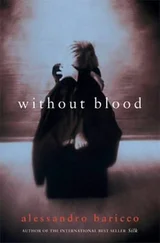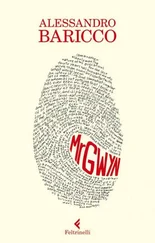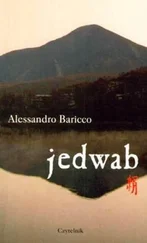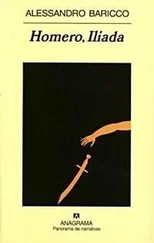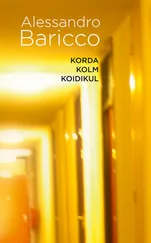It was late when we awoke. We looked at each other and understood that we should not be found like that. The instinct to start over, always. We began to put things in order, hurriedly, I changed, he went to his room. He moved as I had never seen him, lining up his gestures with confidence, eyes vivid, steps graceful. It occurred to me that it would be easy, for the Daughter, to love him.
We didn’t say a word. Only, at a certain point, I asked him:
And now what will you do?
And you? he answered.
In the noonday sun someone knocked at the door, respectful but firm.
Modesto.
It’s more or less at this point that I left my computer on the seat of a bus. A bus that crossed the island from north to south, gliding along roads scarcely wider than itself, with foolish precision. At a certain point I got off and left the computer on the seat. When I realized it, the bus had already disappeared. It was a nice computer, apart from everything else. Inside was my book.
Naturally it wouldn’t have been difficult to get it back, but the truth is that I let it go. To understand you have to take into account the light, the sea, the dogs moving slowly in the sun, how the people live there. The South of the world suggests curious priorities. There is a particular approach to problems — solving them isn’t the first thing that comes to mind. So I walked a while, I sat on a wall, at the port, and then I began watching the boats come and go. I like that whatever they do, they do it slowly. If you look at them from a distance, I mean. It’s a kind of dance, it seems to involve some form of wisdom, or solemnity. There is also some disenchantment at times. Maybe a hint of renunciation — gentle. It’s the marvel of ports.
So I stayed there, and things went well.
Then, at night, I returned to the business of the computer, but without particular anxieties, or fears. It may seem strange, since writing on that computer, and constructing my book, was for months the only activity I could carry out with sufficient passion and constant attention. I should have shit myself out of fear, that’s what I should have done. Instead I thought, very simply, that I would continue to write, and that I would do it in my mind. It seemed to me in fact a natural, and inevitable, epilogue. Fingers on the keyboard suddenly seemed to me uselessly harsh, or an intricate appendix to a gesture that could be much lighter, and more elusive. Besides, for a long time I’d been writing my book walking, or lying on the floor, or at night in the darkness of my insomnia: and with the computer, I tightened its screws, polished it with wax, packed it carefully — all that repertory of craftsmanlike attentions whose exact purpose, to be sincere, I now no longer remember. Surely there must have been one. But I’ve forgotten it. Maybe it wasn’t so important.
Further, one has to consider that, if you are born to do it, writing is an act that coincides with memory: what you write, you recall. So it would be inaccurate to state that I had lost my book, since, to tell the truth, I could recite it all aloud, or, if not all, let’s say at least the parts that counted for something. At most I could not remember certain sentences exactly: but it should also be said that, in bringing them back to the surface, from the place where they had drifted, I ended up rewriting them, in my mind, in a form very close to the original but not identical, the result being a sort of blurring, or echo, or doubling, in which what I imagined I had written developed, splendidly. For, in the end, the only phrase that can accurately translate a writer’s particular intention is never just a sentence but the stratified sum of all the sentences he imagined before, then wrote, then remembered: they should be piled up, one on top of the other, transparent, and perceived simultaneously, like a chord. It’s what memory does, in its visionary imprecision. So, to be objective, I had not only not lost my book but in a certain sense had found it again in its entirety, now that it had dematerialized, retreating into the winter quarters of my mind. I could summon it to the surface at any moment with a barely perceptible effort, situated in some recess of my body that I didn’t know how to describe: it reappeared in a fleeting splendor compared with which the clear orderliness of a printed page displayed the rigidity of a tombstone.
Or at least so it seemed to me, sitting there in a trattoria at the port, that evening, on the island. I’m a genius at making things that went badly go well. I could find advantages even in being stuck in an elevator on Christmas Day. It’s a trick I learned from my father (ah, he’s still alive and he still plays at night on his personal, nine-hole golf course). To have something to relate at lunch the next day, for example.
I thought of these things, and meanwhile I reread some of the book, here and there I rewrote it, all in my head: while mechanically I dipped the bread in the meatball sauce.
At some point a fat, cheerful fellow sitting at a nearby table, also alone, asked me if everything was going well. I thought I must have done something strange — it was possible, when I’m reading and writing the book in my head I don’t control the other parts of my body very well. Those which the book hasn’t entered, I mean. The ankles, maybe.
I came out of my book and told him that everything was going very well.
I was writing, I told him.
He nodded yes with his head, as if it were a thing that used to happen to him, too, all the time, years ago, when he was still young.
Now he was in his sixties.
Placid and self-satisfied, he wanted to inform me of the fact that he was there, at the seaside, because he had had a compliant doctor prescribe for him seven days of “balneotherapy.” They can’t say anything, he explained. He was referring to his employers, I think. He explained that with that term “balneotherapy,” you were sitting pretty. Let them send someone to check on me, he said. Then he moved on to politics and asked if Italy could be saved.
Obviously not, if everyone’s like the two of us, I said.
He found that very amusing: it must have seemed like the start of a friendship, or something of the sort. He decided we were made for one another, then he left. He had to go home a little early because the next day his neighbors had invited him to eat eggplant: the connection between the two things must have seemed so obvious as to need no explanation.
So I stayed, and I was the last. It’s another thing I like: to have a restaurant close around me, at night. To notice that they have begun to switch off the lights, to turn the chairs upside down on the tables. I like it especially when you see the waiters leave to go home, dressed like ordinary people, without the white jacket or the smock, suddenly returned to earth. They walk a little crooked, they seem like forest animals coming out of a spell.
That evening, however, I didn’t even see them. The fact is that I was writing. I don’t even remember paying the bill, for instance. I was writing in my mind: about when the young Bride left. It had to happen, sooner or later, and the day it happened they all knew to make the most appropriate gestures, suggested by upbringing and proved by decades of decorum. Questions were forbidden. The banality of good wishes was avoided. They didn’t like to give in to sentimentality. When they saw her disappear around the bend, no one would have been able to say where she was going: but the biblical delay of the Son, and the suspension of time that that delay had stamped on their days, had left them ill equipped to question the faint relationship that usually holds together a departure and an arrival, an intention and an action. So they watched her leave as, basically, they had seen her arrive: ignorant of everything, aware of everything.
Читать дальше

